Tulalip Legacy of Healing rallies support for DV survivors at 2nd annual Coastal Jam and Dinner
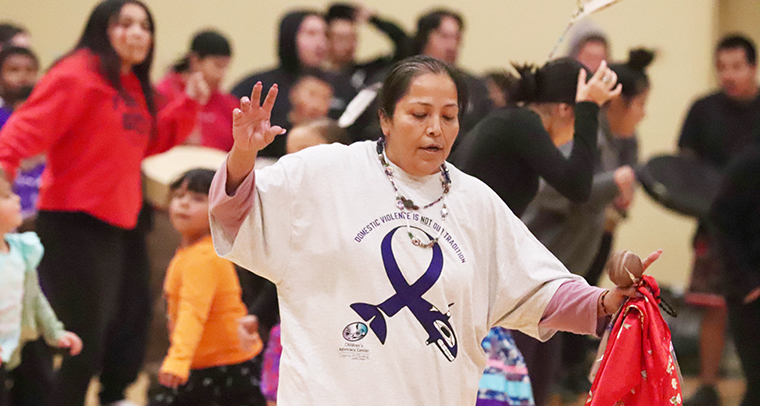
By Kalvin Valdillez, Tulalip News
“I remember gasping for air, feeling his grip tighten behind me. When he finally let me go, I could see the blank expression on his face. Once I finally caught my breath, he walked away. I called the police, which led me to the Legacy of Healing. Their support has been a lifeline for me.”
Tears were visibly streaming down faces while domestic violence (DV) survivor, Andres Thornock, opened up about their experience in a three-year intimate partner DV relationship. By sharing their story, Andres wanted to reassure others that they are not alone, and that help is available at the Tulalip Legacy of Healing.
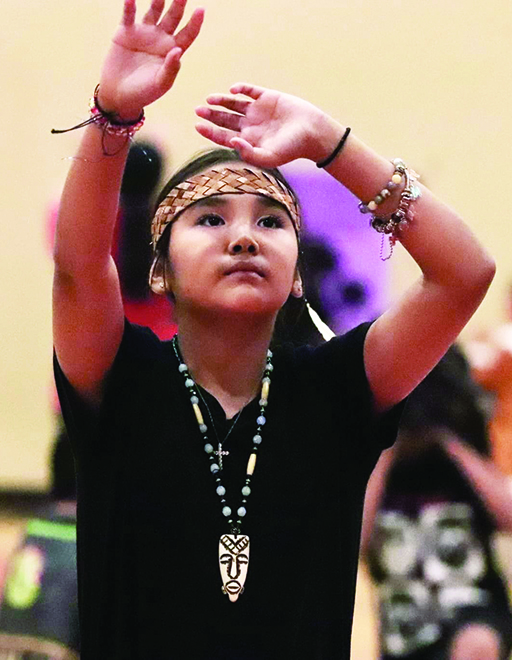
Andres continued, “Throughout our time together, I faced verbal abuse, intimidation, threats, and ultimately physical harm. My now ex-fiancé struggled with alcoholism and bipolar schizoaffective disorder. His emotions would swing wildly – one moment he’d be shouting, the next he’d be in tears. It felt like a relentless rollercoaster. Eventually, I couldn’t sleep at night; I’d wait until he left for work in the morning just to find some rest. He wouldn’t let me work or pursue anything meaningful, often sabotaging my attempts. Living in a constant state of hyper-vigilance for so long made me believe that anxiety and fear were my new normal. I also fell into a deep depression, isolated from everyone I loved. I felt profoundly alone for far too long. This was my reality for three exhausting years.”
Although Andres was only one of two to share their terrifying and heart wrenching truth on the night of October 25, there were scores of people listening who could relate. They say there’s strength in numbers, and that strength could be felt as over 150 people attended the second annual DV Awareness Month Coastal Jam and Dinner. An impressive turnout considering there were several other community gatherings occurring at the same time. That was important for survivors to see that support, feel that love, hear those stories of resiliency, and help raise awareness about DV, something that happens far too often in Native America.
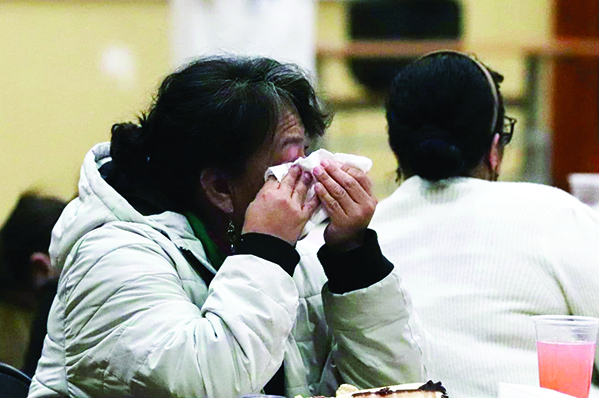
The yearly coastal jam and dinner is organized by the Legacy of Healing, a program that is designed to support local victims and survivors of DV in several capacities. Whether it’s educating the community about DV, providing resources to survivors, standing in your corner throughout the court process, or even designing a safety plan with you for when you’re ready to leave an abusive relationship, the Legacy of Healing is available 24/7 to help in any way that they can. The program has a strict confidentiality policy and does not pass judgement on anybody who needs to utilize their services. So, if you need information for a friend, family member, or yourself, your concerns and conversations shared will remain between you and the advocacy team.
“You don’t need to live with violence in your home,” urged Marisa Chavez, the Legacy of Healing’s Lead Advocate. “The Legacy of Healing is here for you to utilize for help. Once you speak to an advocate, you will be provided with information to learn the next steps on your healing journey to living a DV free life. It may be tedious, but you will find that you have the inner strength and support to make that happen. You don’t need to walk this journey alone to healing. We are here for you.”
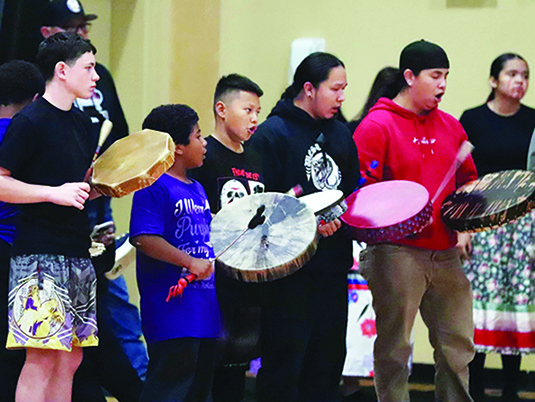
For the better half of the past decade, the Legacy of Healing has participated in a nationwide initiative known as DV Awareness Month. Every October, the program dedicates all of their efforts to educating the community about what DV is and what it looks like, so survivors can identify those red flags and recognize when they are in a dangerous relationship. And through this work, they are able to reach more people and provide support and resources to those in need of their services. During DV Awareness Month, the Legacy of Healing team also partners with the Tulalip Foundation and holds a raffle throughout October, in which all proceeds go directly to helping survivors of DV.
“A lot of times victims experience DV outside of public view and it happens in secret in their own homes,” explained Legacy of Healing Coordinator, Kaley Wickham. “October is a time for us to raise awareness for DV. Most, if not all, of the survivors we work with have also witnessed DV when they were children, or they know other family members or friends who have also experienced it. It’s a very normalized part of their life and yet people aren’t able to recognize it or talk about it.”
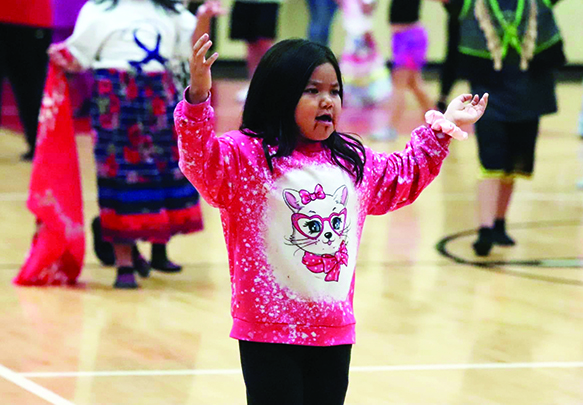
In years past, the Legacy of Healing put on a number of trainings, activities, and movie screenings during the awareness month to bring attention to DV occurring at Tulalip and on reservations across the country. Last year, however, the program pivoted to one culturally centered gathering, which was a huge success. As Natives, we know that there is healing in our traditions. Drum and dance are our tradition. Community and cultural gatherings are our tradition. The ancestral language and songs are our tradition. Sharing story and meals together are our tradition. Wrapping each other with love and healing through the culture is our tradition. The Legacy of Healing took each of those aspects of the culture and enveloped it into one night of awareness and healing – the coastal jam and dinner.
Fittingly, the tagline of this year’s gathering was ‘DV is not our tradition’. Unfortunately, in today’s society, more than four in five Native American men and women have experienced some form of violence in their lifetime – more than 3 million people according to the National Institute of Justice. Through that study, the NIJ also reported that tribal communities experience DV at higher rates than any other race or ethnicity throughout the U.S.
On the night of the coastal jam and dinner, Executive Director of the Tulalip Family Advocacy Division, Jade Carela, elaborated on the statistics. “Tonight, I stand before you not only as an advocate of this work, but also a daughter of our community, which has faced immeasurable pain and loss. This issue touches each of us personally. We have DV in our community happen every day. The statistics we discuss are not just numbers; they represent our family members – they are our sisters, brothers, our mothers, fathers, our daughters, sons, our grandmothers, and grandfathers. Each name, each survivor, is a vital thread in the fabric of our community. These aren’t abstract victims; they are us.”
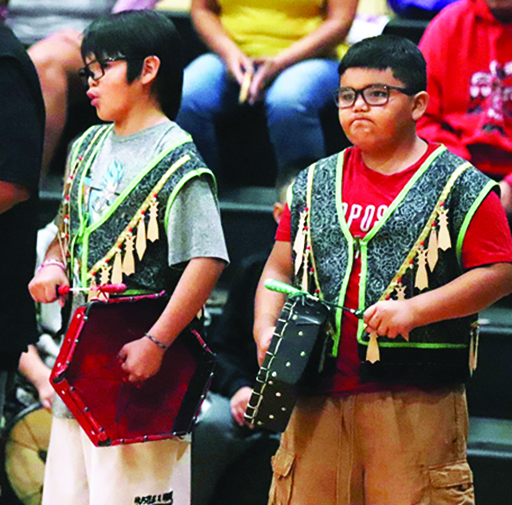
Following the testimonials, bravely shared by Andres and former Tulalip Board of Director Pat Contraro, the dinner concluded with a moment of silence and a prayer song by Antone George (Lummi) and the Westshore Canoe Family. With their swag bags in-hand and donning their new ‘DV is not our tradition’ event t-shirts, the crowd migrated from the Teen Center to the Greg Williams Court for the coastal jam.
As the survivors and their families filed into the bleachers on either side of the court, the healing work began to take place along the sidelines. Throughout the night, three drum groups shared the floor. Their booming voices and steady drumbeats in dedication to all the DV survivors, both inside of the gym and across the reservation. And also, in memory of those who are no longer with us due to DV. Equally as important, dozens of dancers spread that good Indigenous medicine as they occupied the dancefloor for nearly the entire three-hour jam. Many survivors immersed themselves into the songs and dances, experiencing that traditional work first-hand and incorporating their ancestral ways into their healing journey.
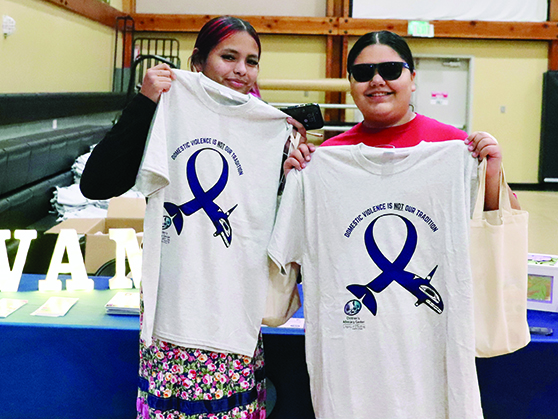
“Why does this matter?” asked Jade, “Because the fabric of our community is integral to the entire tapestry of society. The violence that affects us reflects deeper systemic issues that we have faced for generations. Standing up for the rights and safety of Indigenous people strengthens our collective human dignity. Tonight is not just for reflection, but for collective awareness. We must arm ourselves with knowledge and the tools to dismantle the cycle of violence against our community. Violence is against our traditions, our values, and our culture. Together, let’s turn our shared trauma into our collective strength. Stand united, as our ancestors did, and ensure our community does not merely survive but flourishes.”
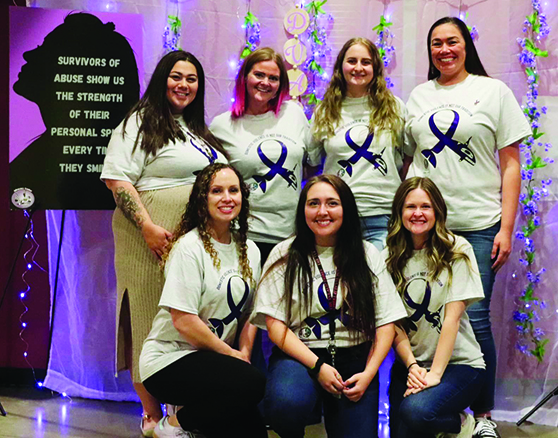
If you or anybody you know is experiencing an abusive relationship, please do not hesitate to call the Legacy of Healing at (360) 716-4100 for assistance. And if you are in a crisis or an emergency situation, the Legacy of Healing provided a list of three additional hotline numbers that you can utilize during your time of need:
- The National Domestic Violence Hotline 1-800-799-SAFE (7233)
- Strong Hearts Native Helpline: 1-844-762-8483
- Domestic Violence Services of Snohomish County 425-25-ABUSE (22873)
Reflecting on another successful coastal jam and dinner, Jade expressed, “Let us honor the memory of those we’ve lost and those who are still experiencing DV by committing to an unwavering dedication to end violence in our communities. Thank you for standing with us – for our people, for our future. I am grateful that so many of our community members came to support the cause. I’m also thankful for my staff and their dedication to our community. We owe it our ancestors, our current families, and the many generations yet to come to fight for a community where every one of us is safe, respected, and cherished.”